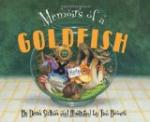This utter ignorance of actual life not only keeps us at a distance from the people of our own time but renders our ideas of history equally vague, abstract and unprofitable. I believe it would be an excellent thing if, beginning with the age of about ten years, no child were allowed to eat anything until he was able to tell where it was produced, what it cost and how it was prepared. If this were carried out in every department of the child’s existence he would have small need of the superficial education furnished by most of our institutions of learning. Our children are taught about the famines of history when they cannot recognize a blade of wheat or tell the price of a loaf of bread, or how it is made.
I would begin the education of my boy—him of the tango and balkline billiards—with a study of himself, in the broad use of the term, before I allowed him to study about other people or the history of nations. I would seat him in a chair by the fire and begin with his feet. I would inquire what he knew about his shoes—what they were made of, where the substance came from, the cost of its production, the duty on leather, the process of manufacture, the method of transportation of goods, freight rates, retailing, wages, repairs, how shoes were polished—this would begin, if desired, a new line of inquiry as to the composition of said polish, cost, and so on—comparative durability of hand and machine work, introduction of machines into England and its effect on industrial conditions. I say I would do all this; but, of course, I could not. I would have to be an educated man in the first place. Why, beginning with that dusty little pair of shoes, my boy and I might soon be deep in Interstate Commerce and the Theory of Malthus—on familiar terms with Thomas A. Edison and Henry George!
And the next time my son read about a Tammany politician giving away a pair of shoes to each of his adherents it would mean something to him—as much as any other master stroke of diplomacy.
I would instruct every boy in a practical knowledge of the house in which he lives, give him a familiarity with simple tools and a knowledge of how to make small repairs and to tinker with the water pipes. I would teach him all those things I now do not know myself—where the homeless man can find a night’s lodging; how to get a disorderly person arrested; why bottled milk costs fifteen cents a quart; how one gets his name on the ballot if he wants to run for alderman; where the Health Department is located, and how to get vaccinated for nothing.
By the time we had finished we would be in a position to understand the various editorials in the morning papers which now we do not read. Far more than that, my son would be brought to a realization that everything in the world is full of interest for the man who has the knowledge to appreciate its significance. “A primrose by a river’s brim” should be no more suggestive, even to a lake-poet, than a Persian rug or a rubber shoe. Instead of the rug he will have a vision of the patient Afghan in his mountain village working for years with unrequited industry; instead of the shoe he will see King Leopold and hear the lamentations of the Congo.




